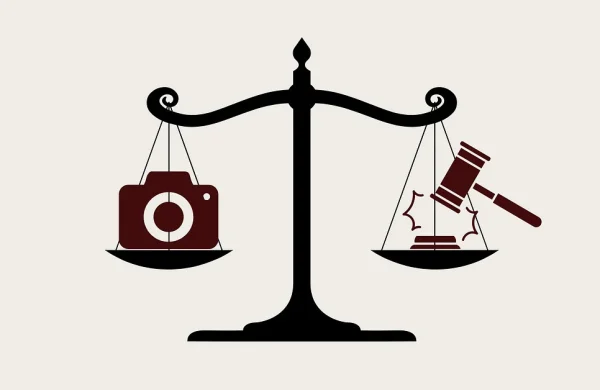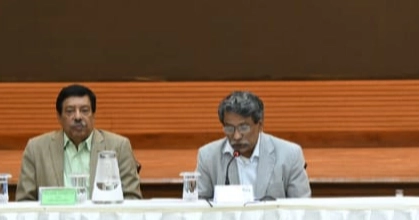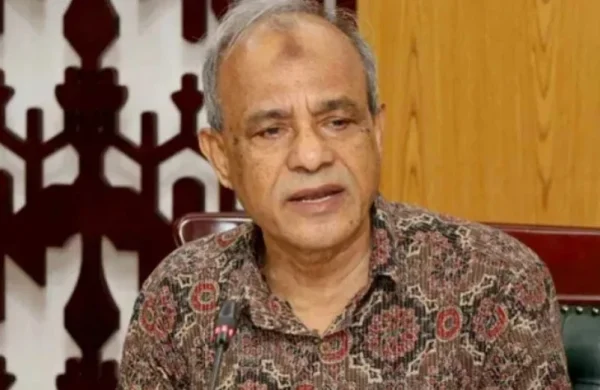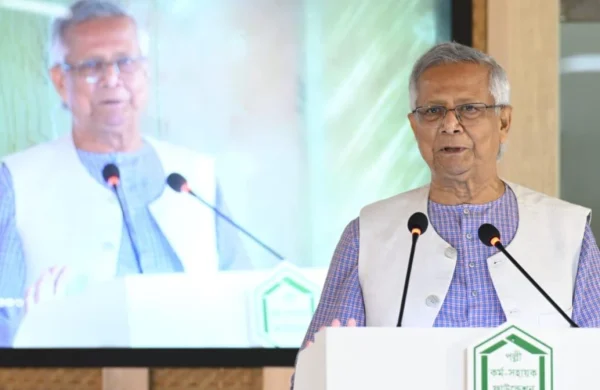Media trial destroying the nation
- Update Time : Saturday, May 24, 2025

TDS Desk:
A new weapon in the destruction of the nation has emerged — the “media trial.” Beyond depoliticising public discourse, such trials are crippling the country’s economy. Misinformation and rumours are being widely spread, instilling fear and confusion among the public. Not only social media, but even several mainstream outlets have become factories of disinformation.
Certain media outlets are delivering verdicts before any judicial proceedings. Innocent individuals are being labelled as criminals, even murder suspects. By socially humiliating individuals, unrest is being spread throughout society.
A similar atmosphere prevailed during the 1/11 political crisis in 2007. The same tendencies are resurfacing today, though with a key difference: back then, social media was not as active. Today, social media has become a major tool in the execution of media trials.
Who is most responsible for the current state of national instability? An investigation would reveal that irresponsible behaviour by some media outlets, and the subsequent spread of misinformation on social platforms, are largely to blame. Most Bangladeshi media are responsible and patriotic. However, a few outlets are working to turn the country into a playground for foreign interests, pushing a depoliticisation agenda, seeking to establish elite dominance, and destabilising the economic foundation.
Following the July uprising, people had hoped for a prosperous and equitable Bangladesh, where citizens would live without fear. Yet, certain quarters have instead launched a campaign to depoliticise the country, and some media are advancing that agenda. These outlets are fuelling discord, unrest, and disunity — triggering fresh waves of anarchy.
Over the past 10 months, nearly 15,000 cases have been filed across the country, implicating over 150,000 individuals. The prisons are overcrowded, and investigations have made little progress. It is widely accepted that most of these cases are fabricated — an admission made by the government itself. Yet some media are promoting these cases, branding people as guilty without trial, and publishing the accused’s names, tarnishing reputations and creating widespread fear.
On 5 August last year, unruly mobs, spurred by opportunists, engaged in planned attacks on factories, businesses, and even private residences. Social and mainstream media played a significant role in inciting such mob violence by publishing unverified reports, labelling individuals as collaborators or fascists. This emboldened the mobs further.
The most severe impact of media trials has fallen on the economy. Bangladesh’s economic development is rooted in the private sector, built painstakingly over 51 years by entrepreneurs who sacrificed personal comfort for the country’s progress. They have created jobs, set up industries, and transformed the country into a middle-income nation.
Now, these very entrepreneurs and investors are being targeted. A few media outlets are publishing unsubstantiated reports against major industrial groups. Without proper verification, these stories are inciting government actions against industries. Each of these reports is driven by an ulterior motive.
Reports targeting prominent industrial groups — often baseless — are prompting agencies like the Anti-Corruption Commission (ACC) and Bangladesh Bank to launch investigations. In the name of inquiry, harassment is rampant. Bank accounts are being frozen without proper justification, businesses are being shut down, and in some cases, businesspeople are being arrested. This has created severe disruption. Fear-stricken entrepreneurs are scaling down or ceasing operations. As a result, more than 100,000 workers have lost jobs in the past nine months. Many factories are failing to pay salaries, accounts remain frozen, and several businessmen are behind bars without trial under fabricated murder charges — pushing the economy towards stagnation.
A similar attack on businesses occurred during the 1/11 regime, aimed at making Bangladesh economically dependent. Such dependence exposes the country to foreign debt and conditionalities. Take, for example, the recent IMF loan, whose conditions are counterproductive to economic growth. Floating the exchange rate has caused the taka to depreciate rapidly — from Tk122 to Tk129 per US dollar within days, with some fearing it may climb to Tk200. This has adversely impacted trade and commerce.
Had the post-July leadership taken the private sector into confidence — as it did with other stakeholders — and assigned them a role in nation-building, entrepreneurs could have stood beside the government to help revive the economy. Instead, blame games and smear campaigns have taken precedence, targeting businesses and spreading malicious narratives. This media trial must stop immediately.
In addition to some mainstream outlets, social media is rife with rumours and misinformation. On Friday morning, the Bangladesh Armed Forces issued a press release warning against such disinformation. This statement is significant, as the military remains the last bastion of public trust. No one should attempt to drag the armed forces into controversy.
To avert another 1/11-like scenario, media trials must be halted now. If we are to build a new Bangladesh and move the country forward, we must combat disinformation. Those using the media to push a depoliticisation agenda must be reined in.
Recently, the interim government formed a media commission. However, this body appears to be leaning towards curtailing media freedom, promoting the interests of a particular clique. Experts fear that this could accelerate depoliticisation and further damage the economy.
This country belongs to all of us. We must not forget that every nation that has risen to prosperity did so by supporting its private sector. No country has achieved economic recovery by vilifying, harassing, or criminalising its entrepreneurs. Shuttering businesses, freezing bank accounts, or filing fake murder charges will not restore our economy.
















